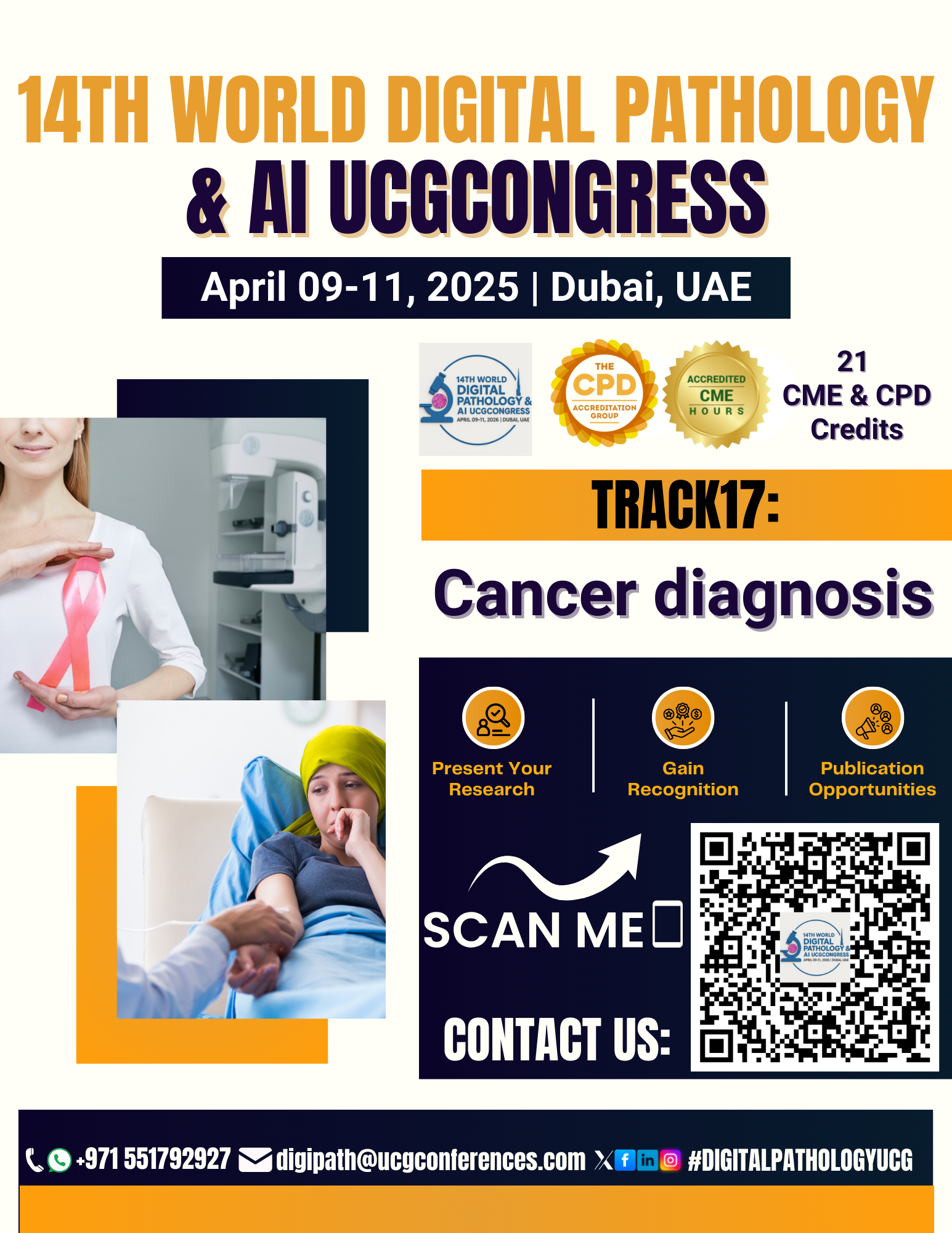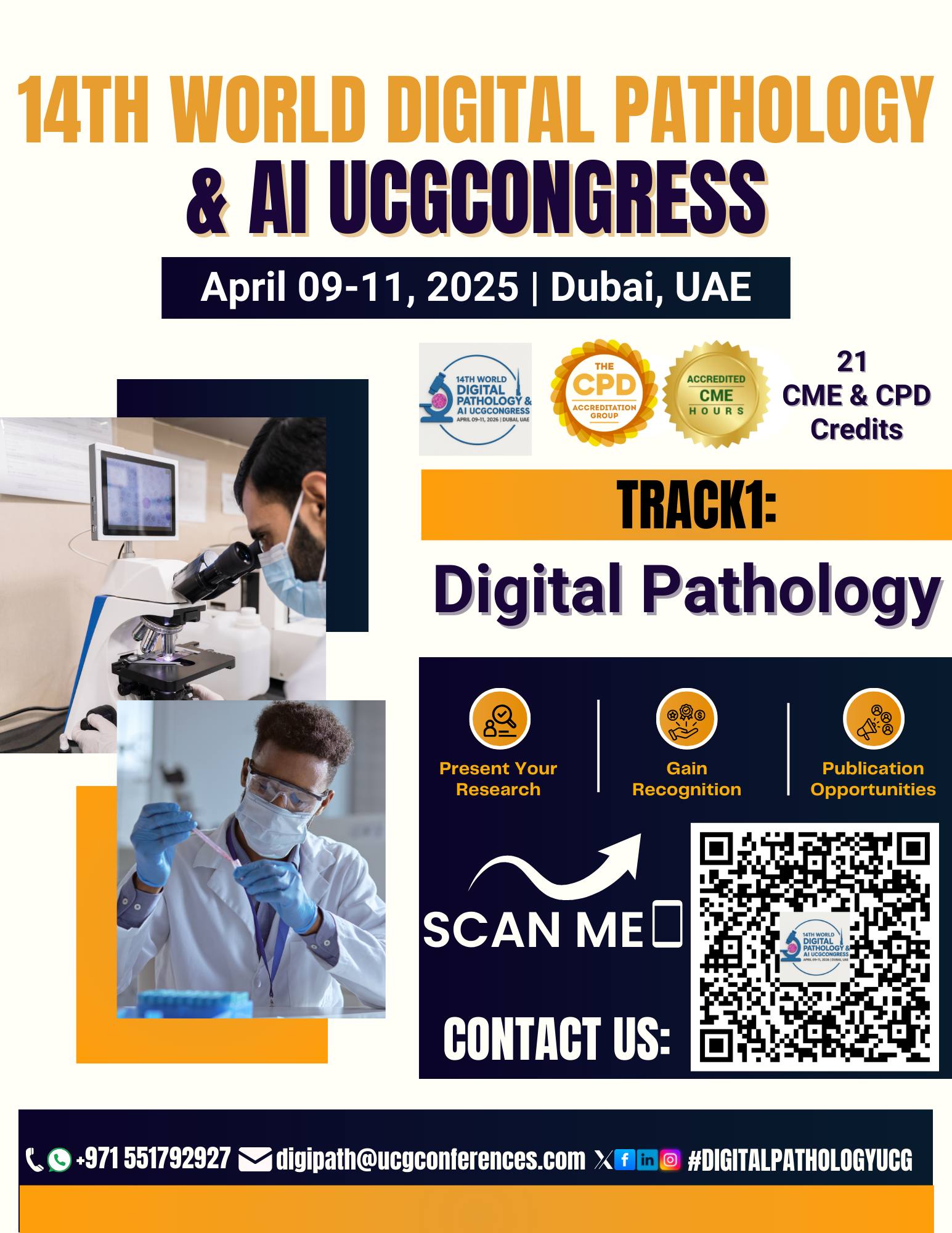



Sub track:-
Enhanced Image Quality Quantitative Analysis, Faster Turnaround Times,...

Sub track:-
Integration of Imaging Modalities, Advanced Image...

Track Overview:
Cancer diagnosis is one of the most critical
applications of digital pathology, as accurate and timely identification of
cancerous tissue can significantly impact patient outcomes. This track will
focus on the role of digital pathology in improving cancer diagnosis, from
early detection to precision diagnostics. Attendees will explore the use of
advanced imaging technologies, biomarkers, and AI-powered tools in identifying
various cancer types, as well as challenges and innovations in cancer
diagnosis.
Key Topics:
Advances in Cancer Imaging: Exploring digital
pathology’s role in enhancing imaging techniques such as whole-slide imaging
(WSI) and high-resolution microscopy for better visualization of cancer cells.
AI and Machine Learning in Cancer Diagnosis: How artificial
intelligence is transforming cancer diagnostics through automated image
analysis, early detection, and prognostic assessments.
Biomarkers and Precision Diagnostics: The use of
digital pathology in identifying cancer biomarkers and their integration into
personalized treatment plans and targeted therapies.
Cancer Subtypes and Tumor Heterogeneity:
Understanding the significance of identifying different cancer subtypes and
tumor heterogeneity in diagnosis and treatment.
Pathologist's Role in Cancer Diagnosis: How digital
pathology assists pathologists in making more accurate and efficient cancer
diagnoses, supporting both routine and complex cases.
Regulatory and Ethical Challenges: The regulatory
landscape for cancer diagnostic tools, focusing on FDA approval processes and
ethical considerations in AI-driven cancer diagnosis.
Learning Objectives:
Learn about the latest advancements in digital
pathology for improving cancer diagnosis and imaging techniques.
Understand how AI and machine learning are
enhancing the accuracy and efficiency of cancer detection and prognosis.
Explore the role of digital pathology in
identifying cancer biomarkers and supporting precision diagnostics and targeted
treatments.
Gain insights into the challenges of diagnosing
cancer subtypes and understanding tumor heterogeneity.
Understand regulatory, ethical, and clinical
considerations in adopting digital pathology for cancer diagnosis.
Target Audience:
Pathologists, oncologists, and clinical researchers
working in cancer diagnosis and treatment.
Researchers and data scientists involved in the
application of AI and machine learning for cancer diagnostics.
Healthcare professionals and lab managers seeking
to integrate digital pathology tools in cancer diagnosis workflows.
Regulatory and compliance experts interested in the
approval and use of diagnostic technologies in oncology.
Speakers/Presenters:
Leading oncologists and pathologists specializing
in cancer diagnosis.
Researchers developing AI tools and biomarkers for
cancer detection and precision oncology.
Experts in regulatory issues related to digital
pathology and cancer diagnostics.
Clinical professionals applying digital pathology
technologies to enhance cancer diagnostic accuracy.
Conclusion:
This track will provide a comprehensive overview of
how digital pathology is enhancing the accuracy, efficiency, and
personalization of cancer diagnosis. Attendees will gain valuable insights into
the latest innovations and best practices in cancer diagnostics, along with the
challenges and opportunities in adopting these technologies for clinical use.